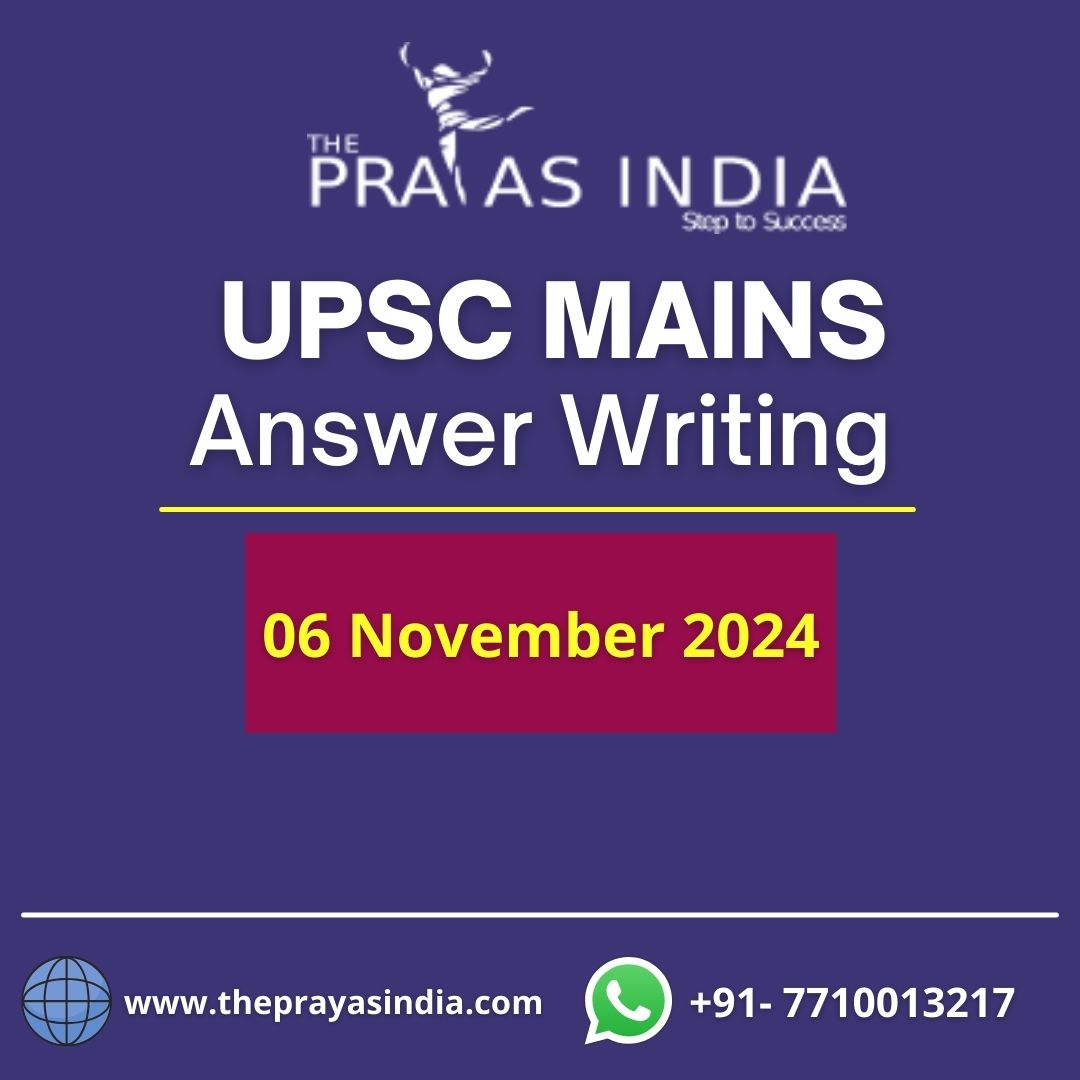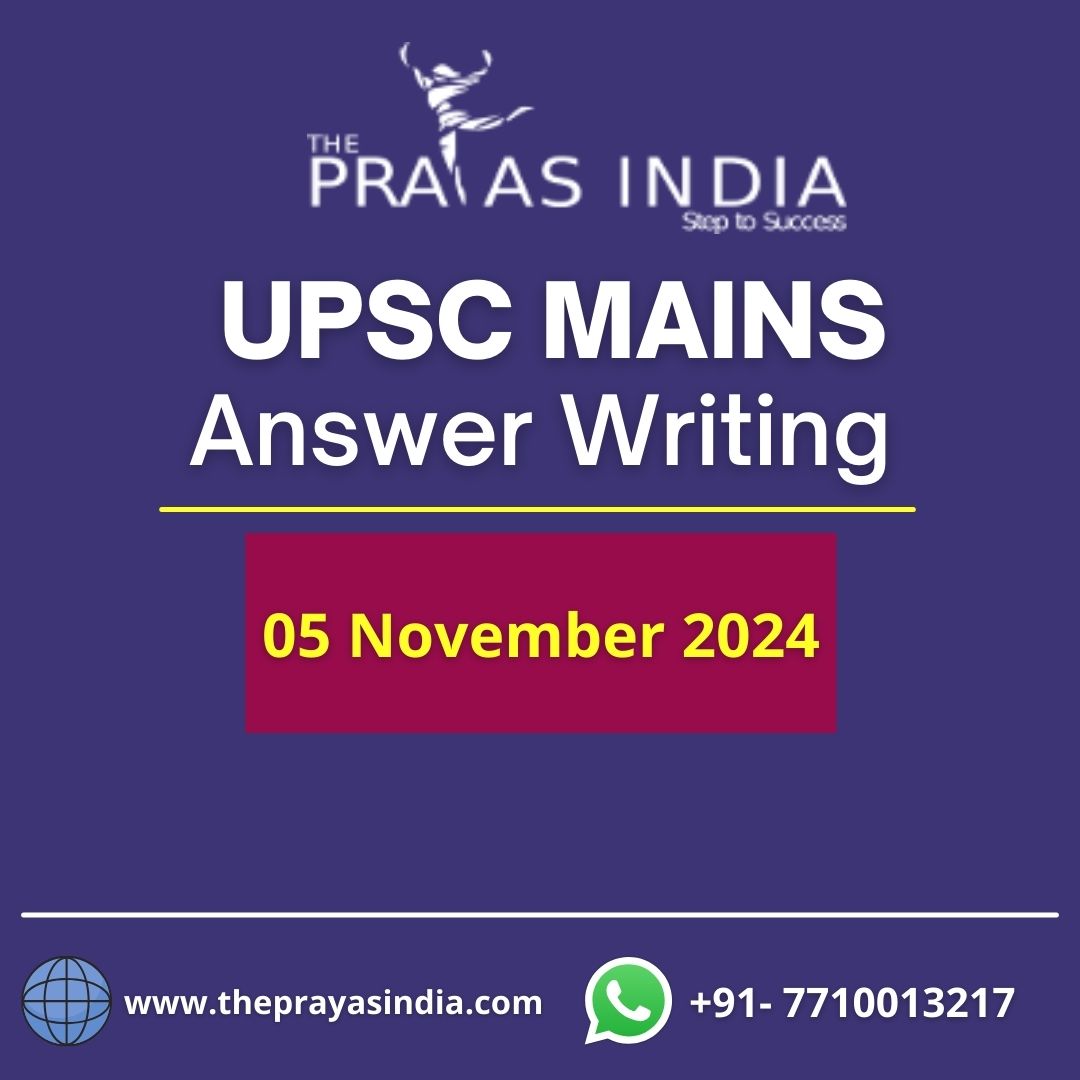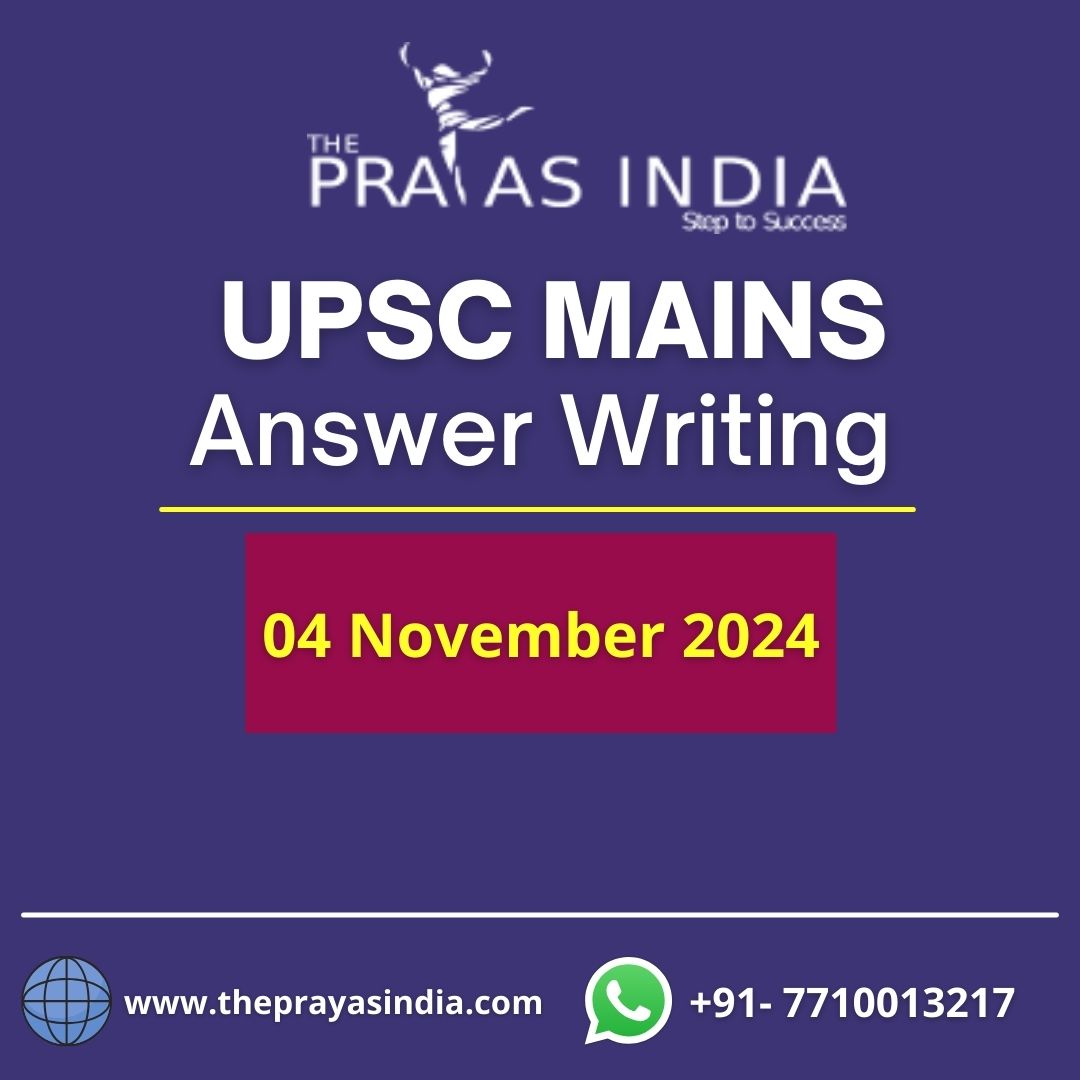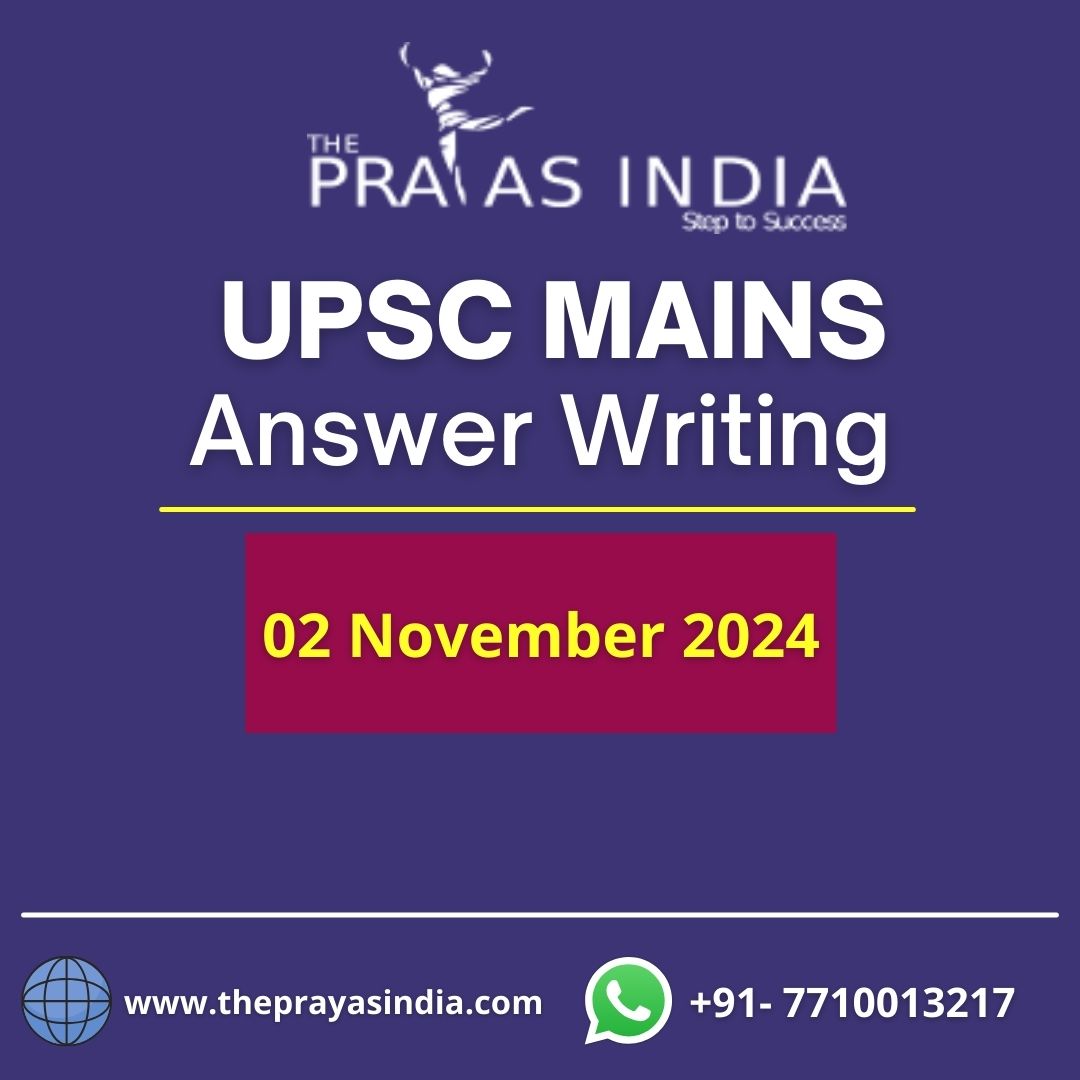MAINS DAILY QUESTIONS & MODEL ANSWERS
Q1. Do you think marriage as a sacrament is loosing its value in Modern India?
GS I – Indian Society
Introduction:
- Marriage, a legally and socially recognized partnership aiming to form families and follow social norms, is deeply rooted in Indian culture and religion. However, in modern India, its value as a sacrament is evolving.
Arguments for Diminishing Value:
- Changing Norms: Society now accepts diverse relationships, reducing the emphasis on traditional marriage. Recent data shows an increase in the ‘never married’ youth population to 26.1% in 2019.
- Individual Autonomy: Personal freedom leads to autonomous choices in partnerships, challenging arranged marriages through Live-in relationships and fostering single lifestyles.
- Rising Divorce: Escalating divorce rates suggest a decline in the sanctity and permanence of marriage.
- Economic Independence: Call for women empowerment extends choices beyond traditional marriage, challenging patriarchy and reducing sanctity of marriage.
Arguments Supporting Marriage’s Value:
- Social Stability: Marriage continues to be a cornerstone for social stability by providing a structured framework for family life.
- Legal Protections: It offers crucial legal rights in inheritance, property, and medical decisions.
- Religious Significance: Many view marriage as sacred, tied to their religion, instilling moral values.
- Psychological Security: Marriage reduces isolation, offering psychological security, vital for addressing mental health challenges.
Conclusion:
- In sum, while marriage adapts to modern needs, it remains significant in contemporary India, serving evolving societal aspirations.
Q2. Virus of Conflict is affecting the functioning of the SCO. In the light of the above statement point out the role of India in mitigating the problems.
GS III – Environmental Conservation
Introduction:
- The Shanghai Cooperation Organization (SCO) has emerged as a major non-western security alliance encompassing majority of the world’s population, that aims to promote peace in Eurasia. It is bound to have issues within itself, considering the varied nature and interests of its members.
Conflicts within SCO:
- India and Pakistan: India’s long-lost cousin never seems to want to end its conflict with its neighbour.
- India and China: China’s aggressive stance of claiming territories of its neighbours as its own has led to problems with its adjacent nations including India.
- The Belt and Road Initiative (BRI) too is a problem since it violates India’s territorial integrity and is also seen as an aggressive debt-trap move.
- Economic Disparities: With members having huge income disparities, internal friction is bound to arise.
How India can mitigate problems:
- Dialogue Promotion: India has been known as a proponent of dialogues and diplomatic solutions.
- Cultural Diplomacy: India enjoys a great number of cultural ties with most of the SCO countries. India should look to properly leverage this soft power.
- Backchannel Diplomacy: Track II diplomacy can help create environment conducive for conflict management.
- Joint-military Exercises: These are a great way to familiarise militaries and create healthy relations between nations. For example, Joint SCO anti-terror drill.
Conclusion:
- India’s role in mitigation of various SCO conflicts can be immense considering its values of ‘Vasudhaiv Kutumbakam’ and historical policies such as Panchsheel and non-alignment.




